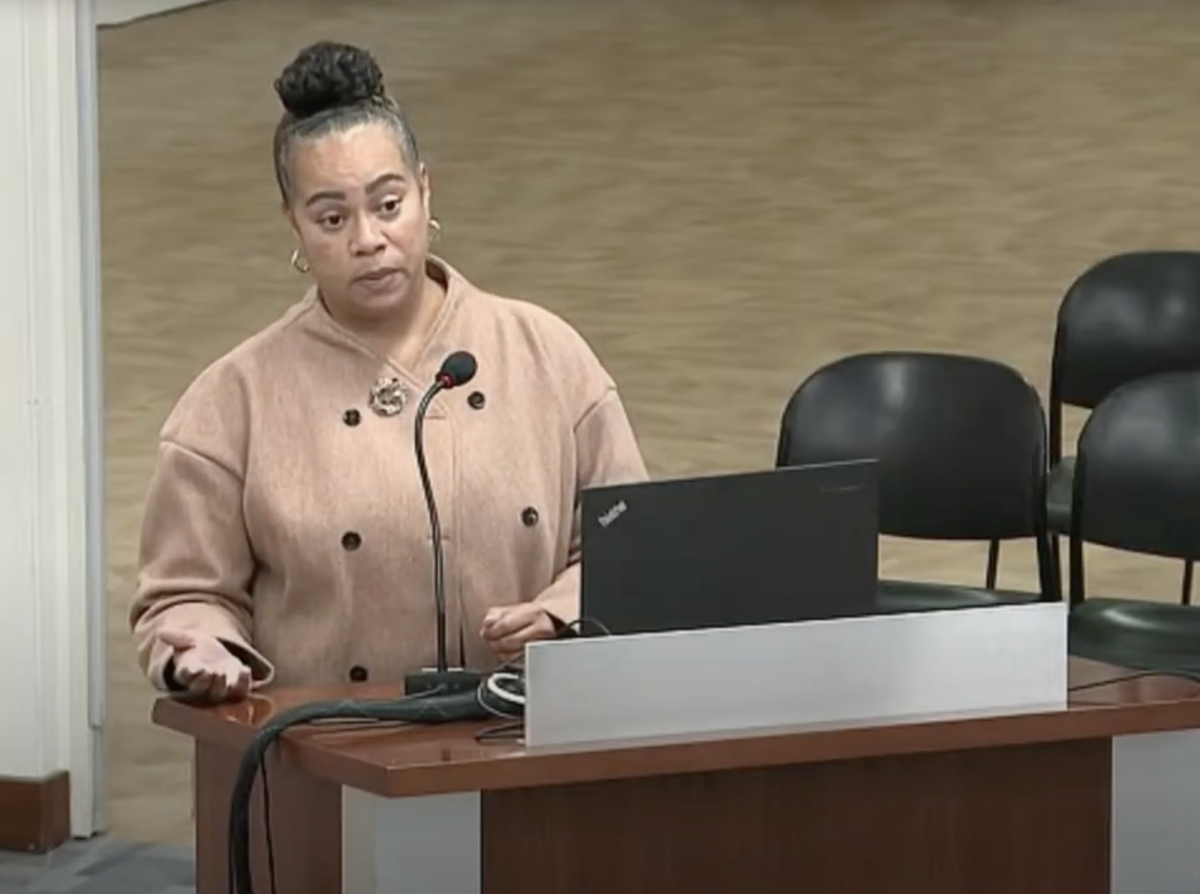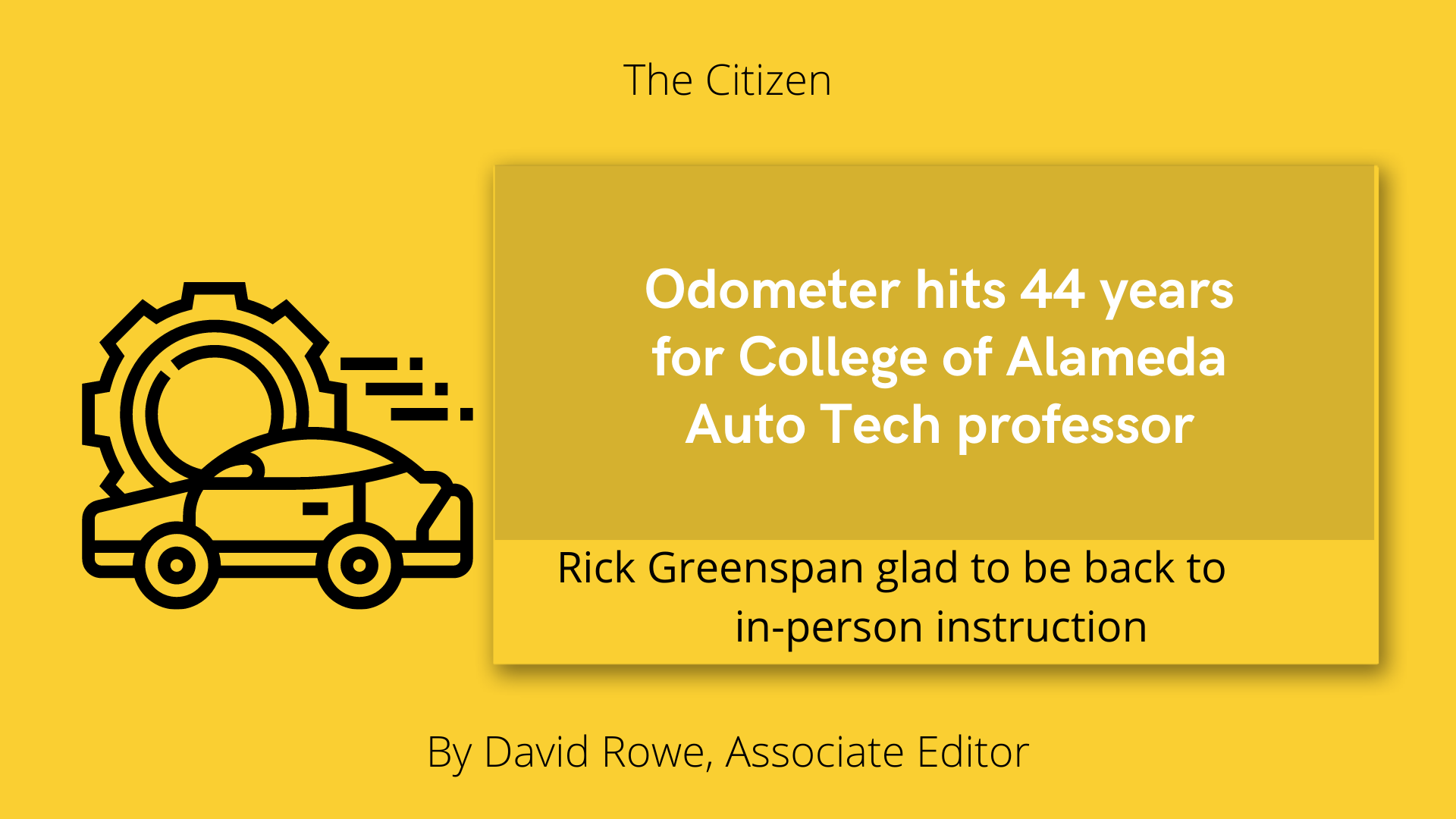
When Professor Rick Greenspan joined the Automotive Technology program at College of Alameda (CoA) in 1977, the best selling car in the US was the Chevrolet Impala. The last Impala rolled off the assembly line early last year, but Greenspan just keeps on going.
According to CoA’s website, the Automotive Technology program (ATECH) is designed to prepare students “for employment as apprentice auto mechanics or to allow (them) to continue toward a Baccalaureate degree in other advanced schools of technology in preparation for future management and teaching careers.” The program actually began at Laney College, according to Greenspan, and moved to CoA in 1968.
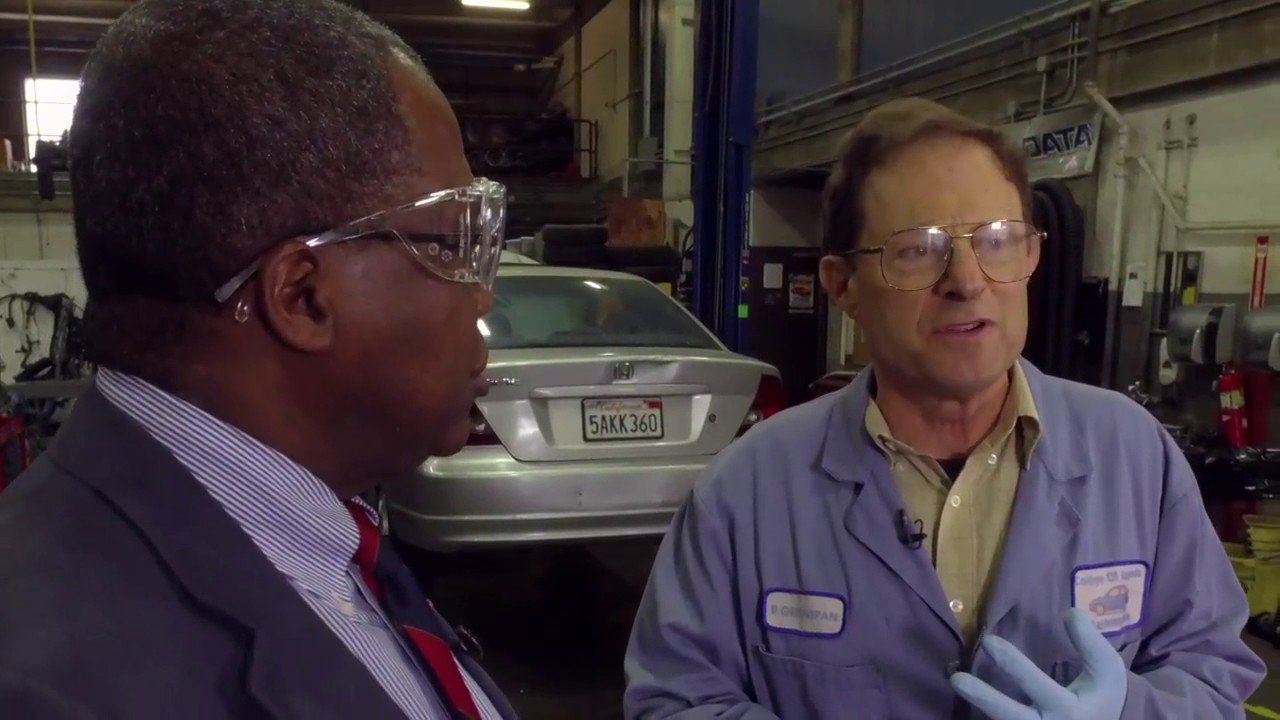
The program currently has about 50 students and, based on past history, the majority can expect to find employment in their field.
“You cannot go to any shop in the East Bay and not find our grad working there,” Greenspan proudly stated. For those skeptical of that claim, Greenspan refers them to the Strong Workforce Program website managed by the California Community Colleges. It shows that 64% of the graduates of the College of ATECH program in 2017-2018 (most recent year for which data is reported) are working in a job closely related to their field of study.
While automotive technology has changed dramatically over the four decades of his tenure, one thing has remained constant for Greenspan: his mission to prepare students for employment in the industry. Greenspan keeps up with the latest trends by attending training sessions conducted by all the major auto manufacturers. Ford, for example, has a training center in Walnut Creek.
Greenspan took a year off from teaching in 2020 due to the pandemic and his age (he is over 65). During that hiatus, he realized how much he enjoyed teaching and is glad to be back to in-person instruction.
The ATECH program currently has 12-14 students per class and offers four classes. In addition to the auto mechanics class, students in the program are required to take a business class on communication skills and a math class. While the vast majority (96%) of current ATECH students are male, Greenspan hopes to achieve more gender diversity in the program moving forward. One of his female students, Natalia Bun, recently received a $750 Gilbert scholarship. Another student, Sohail Ali, was recently awarded the Ozzie Day Scholarship, also in the amount of $750.
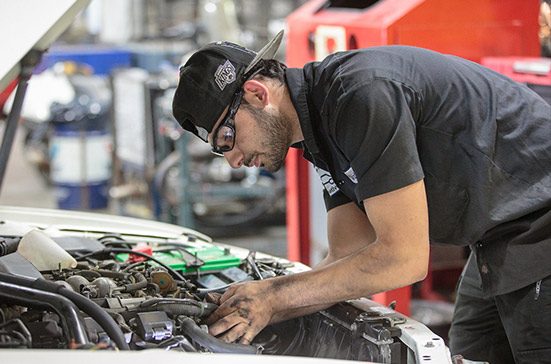
When asked if electric cars present a challenge, Greenspan replies that his students have been working on the Toyota Prius hybrids for many years and the mechanics of all-electric cars are not that different. When Toyota had its US headquarters in southern California, it donated cars to College of Alameda and other community colleges for their automotive technology programs. Tesla has also made overtures to community colleges and encouraged Greenspan to focus exclusively on electric vehicle technology rather than “teaching smog.” Greenspan thinks that would be a mistake, however, since the vast majority of the cars on the road are still gas-powered and those are the vehicles his graduates will be expected to repair.
Greenspan is looking forward to the construction of a new state-of-the-art facility at College of Alameda for the ATECH program. Designs for that building are currently being reviewed by state officials in Sacramento, Greenspan hopes it will receive approval by this Spring and be constructed in the next two years.
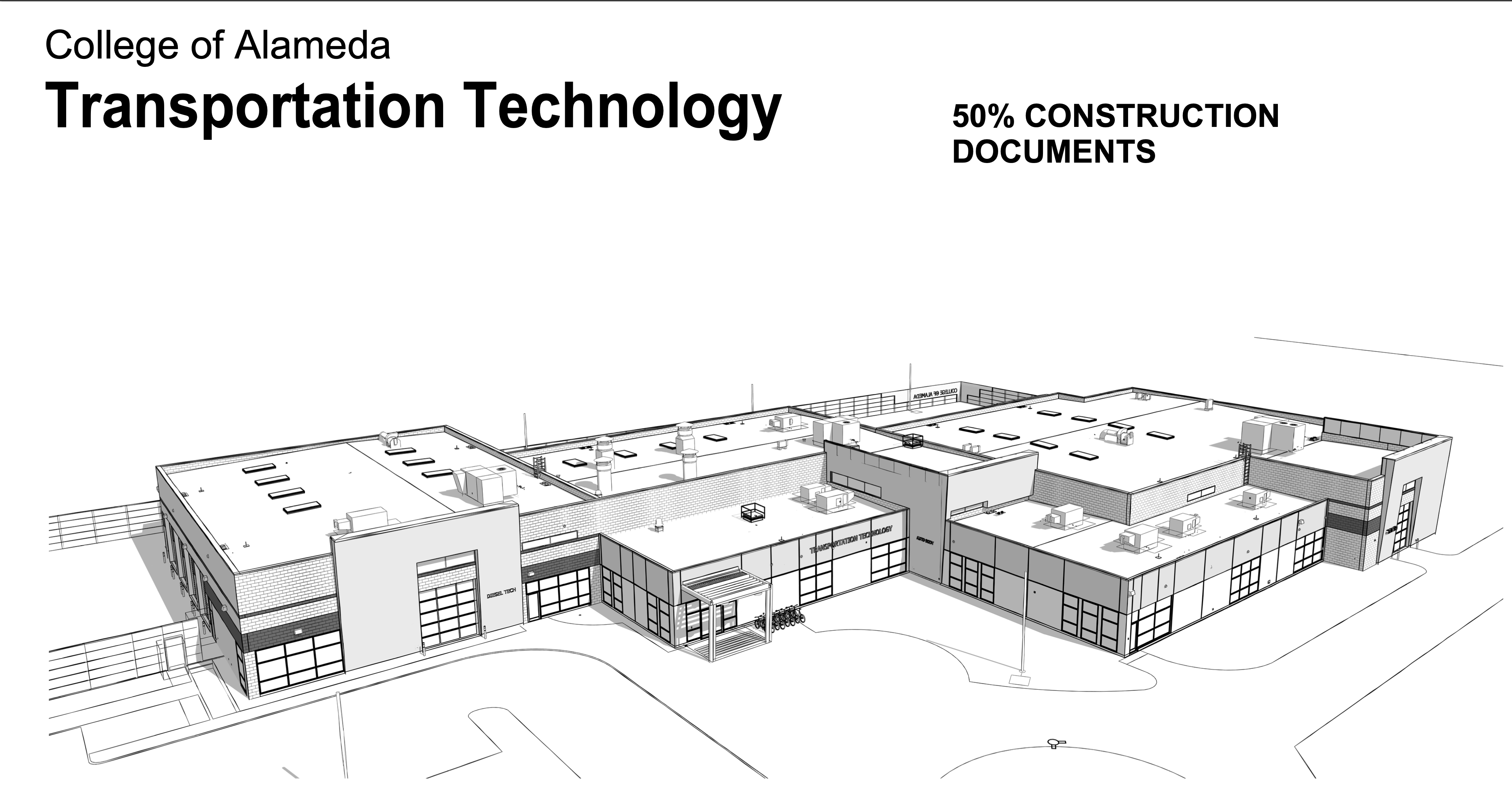
A self-confessed “wrench head,” Greenspan’s personal auto fleet consists of a 2016 Honda CRV and a 1996 Nissan Maxima. Like Greenspan, they may have a few miles on them but are well maintained and ready for the road ahead.



